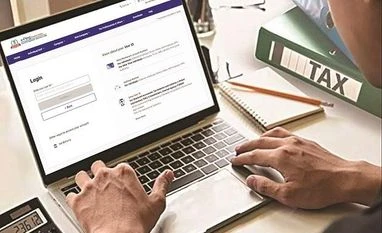Many employees faced salary cuts because of the disruption caused by Covid-19. But when the outlook improved, salaries of many such employees were reinstated, and some even received bonuses. Many are now wondering if they will have to pay higher taxes this year.
Suresh Surana, founder, RSM India, says, “Salary is taxed in the hands of an individual on due or receipt basis, whichever is earlier. However, if an individual receives a certain sum of money in the current year that pertains to a previous year, he may have to pay higher taxes on such receipts as a result of the increase in tax rates.”
To avoid over-taxation due to salary received as advance or as arrears, the Income Tax (I-T) Act has a provision under Section 89 (1) for claiming relief.
Taxpayers can claim relief for an amount equal to the additional tax liability, arising due to deferment in receipt of income.
As for bonus, Naveen Wadhwa, deputy general manager, Taxmann, says, “Bonus paid or payable by the employer is taxable in the year of receipt if it has not been taxed earlier on a due basis. If the bonus is received as arrears, the assessee can claim relief under Section 89.”
Income eligible for relief
Relief can be claimed on several types of income received as arrears.
Maneet Pal Singh, partner, IP Pasricha & Co, says, “Section 89(1) provides relief in cases where salary is received as arrears or as advance, receipt of gratuity for past service, compensation on termination of employment, and commuted pension.”
At the time of retirement, if an employee opts for commutation of pension, a lump sum is paid to him (in lieu of periodic payments of pension). The pension then begins on the remaining amount. Note, even family pension received as arrears qualifies for Section 89(1) relief. This holds true for premature withdrawal from a provident fund account, too.
How to claim relief
Rule 21A of the I-T rules prescribes the method for computing relief (see table). Deepak Jain, chief executive, TaxManager.in, says, “An individual can claim relief under Section 89(1) only if she submits Form 10E.” This form can be filed online on the I-T portal.
Things to keep in mind
When it comes to filing Form 10E, timing is important. Wadhwa says, “It has to be filed online at the e-filing portal before filing the Income-Tax Return (ITR). If it is filed after filing the ITR, the I-T department may not allow Section 89 relief claimed in the ITR.”
Jain adds, “Those who have not filed Form 10E could receive a notice from the I-T department for non-compliance. Their return will not be processed till the form is submitted.”
Intimation under Section 143(1) could also be sent for making the proposed adjustments. Surana says, “Individuals need not worry if they have failed to file this form, but they should file it duly when they receive a notice.”
The employee should claim relief in the ITR for the year in which the lump sum is received, except in the case of advance salary, where relief is available in the year in which the salary will be due.
Singh says, “After filing Form 10E, share a copy with the employer for the purpose of TDS (tax deduction at source) calculation.”
While claiming relief, select the assessment year properly to which the arrears belong. Disclose the previous year’s income also properly.
Surana adds, “Maintain all the necessary proof to substantiate the relief claimed and thus avoid unnecessary litigation.”

Unlock 30+ premium stories daily hand-picked by our editors, across devices on browser and app.
Pick your 5 favourite companies, get a daily email with all news updates on them.
Full access to our intuitive epaper - clip, save, share articles from any device; newspaper archives from 2006.
Preferential invites to Business Standard events.
Curated newsletters on markets, personal finance, policy & politics, start-ups, technology, and more.



)